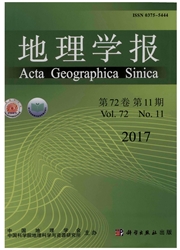

 中文摘要:
中文摘要:
在日益城市化的当今世界.城市地区的可持续性水平高低是影响全球可持续发展的关键环节,对城市可持续性展开定量评估已经成为近年来城市研究领域的热点议题之一。通过国际层面的主题性文献分析.对城市可持续性的定量评估进行系统解读:在理论方法层面,提炼归纳了人口增长维度的承栽能力计算、生产投入维度的绿色账户审计、消费行为维度的生态足迹测量、建设运行维度的生命周期分析以及系统整体维度的可持续性指标等基本模型.并对各自的优缺点进行比较分析;在实践探索领域,可持续指标方法得到较为广泛的应用.通过对国际机构发起的指标框架构建和地方团体推动的典型实践范例进行系统检讨。指出城市可持续性评估的理论方法和实践领域之间,仍存在明显的鸿沟;最后,通过城市可持续性的理论反思,提出了定量评估实践的策略建议,
 英文摘要:
英文摘要:
Urban sustainability is becoming one of the hottest issues on global sustainable development. As an important theoretic domain, quantitative urban sustainability assessment includes several basic methodological models, including evaluation of carrying capacity based on population data, green accounting of production, consumption-based assessment of ecological dices. A gap exists between theoretical paper provides suggestions on narrowing footprint, and system-based sustainability inmethodologies and local practices and the the gap.
 同期刊论文项目
同期刊论文项目
 同项目期刊论文
同项目期刊论文
 期刊信息
期刊信息
